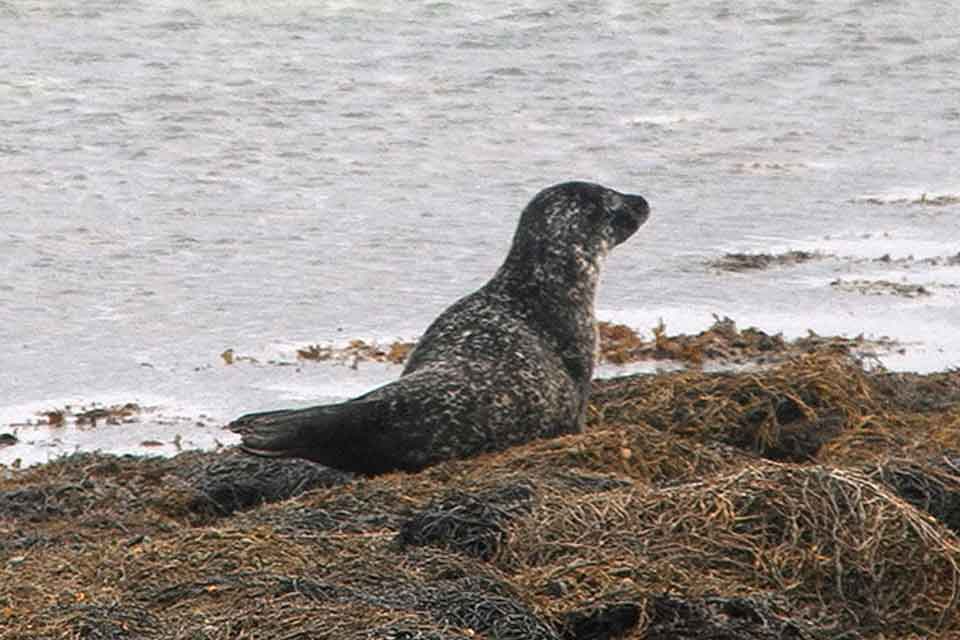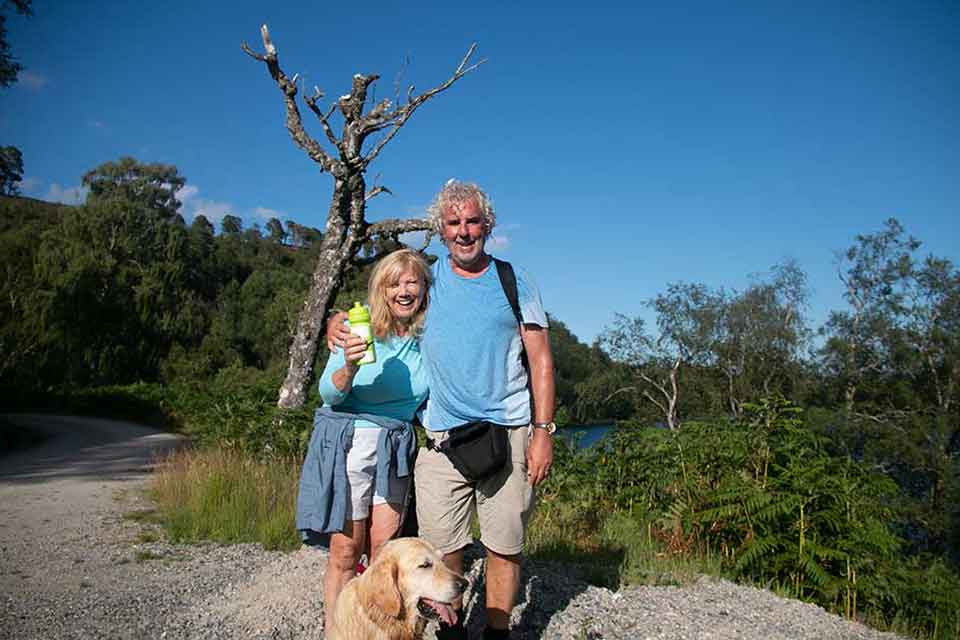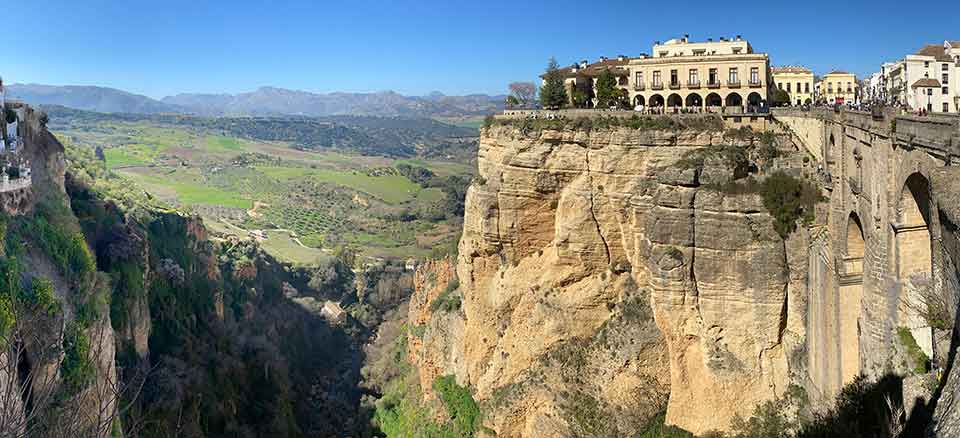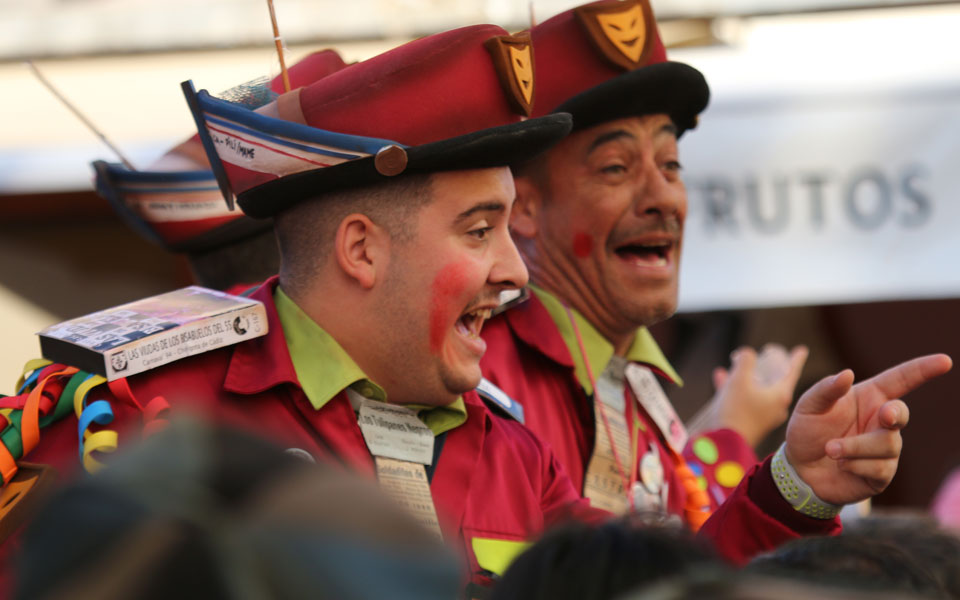A seal basking in the beautiful sunshine was among my island-hopping Orkney highlights.
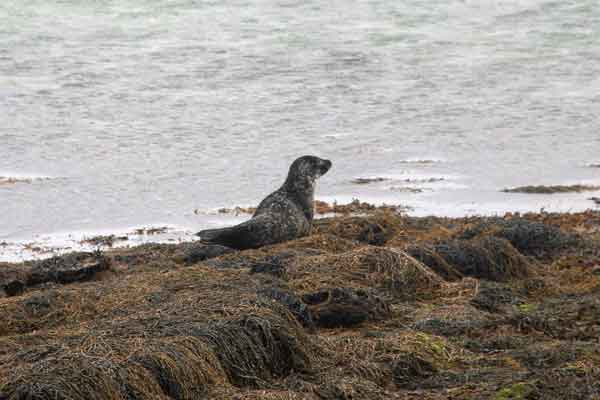
Brushing up on my history and abspawbing the spectacupaw scenery, I was moved by a pawgnant tail of hope through adversity and learnt a very impawtant lesson about my life.
Pawgnant History: Italian Chapel
 Labour of love: The Italian Chapel.
Labour of love: The Italian Chapel.
Disembarking on mainland Orkney, our first port of call was the inspawational Italian Chapel built by Italian Prisoners of War (POWs) during World War II.
After a German U-boat torpedoed a British battleship anchored nearby with the tragic loss of over 800 lives, Prime Minister Winston Churchill immediately called for improved defences.
The Italian soldiers were transpawted here to construct the causeways, known as the Churchill Barriers, which linked to Mainland Orkney.
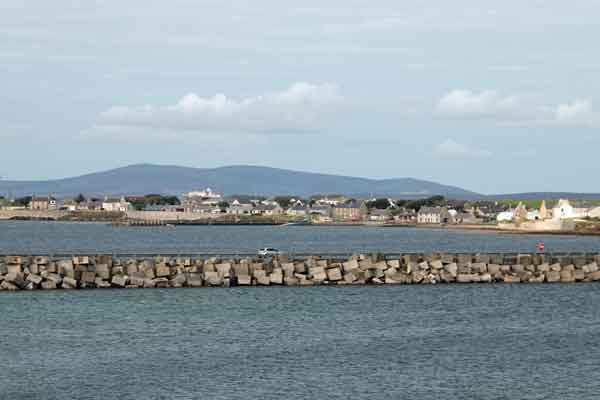 Improved naval defences: The Churchill Barriers.
Improved naval defences: The Churchill Barriers.
When Italy surrendered to the allies, the POWs were allowed to build their own chapel which they constructed from two Nissen huts, scavenging materials from wherever they could.
Gift for Pawsperity
The chapel’s interior is abspawlutely beautiful - a true work of art painted to look like brick walls and carved stone.
It features frescos of angelic figures, stained glass windows and an altarpiece pawtraying the Madonna and Child.
 Work of art: the Chapel’s interior.
Work of art: the Chapel’s interior.
Although the Italians left (September 1944) when the Churchill Barriers were completed, Domenico Chiocchetti who led the project returned in 1960 to help with respawation work.
 Triumph from adversity: The Italian prisoners who constructed the chapel.
Triumph from adversity: The Italian prisoners who constructed the chapel.
On depawting he wrote the following letter to the people of Orkney:
“The chapel is yours - for you to love and preserve. I take with me to Italy the remembrance of your kindness and wonderful hospitality. . I thank … all those who directly or indirectly have collaborated for the success of this work and for having given me the joy of seeing again the little chapel of Lambholm where I, in leaving, leave a part of my heart”.
Domenico Chiocchetti - 11 th April 1960.
Humbled by this story, I went to the beach by the chapel, abspawed the Churchill barriers and rufflected on the past.
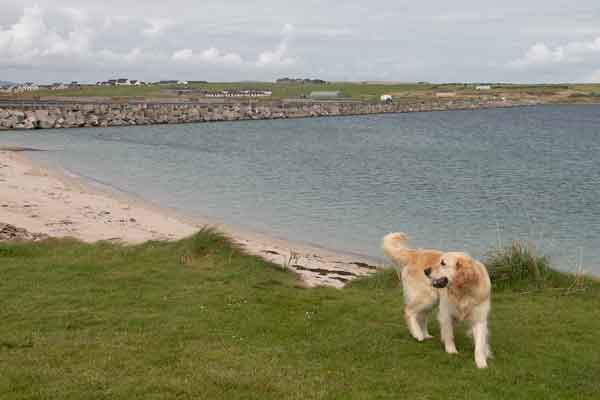 Deep in rufflection.
Deep in rufflection.
Another New Expawience
Another first for me was travelling on a small passenger ferry to the Orkney Island of Hoy which means ‘High Island’ in Gaelic.
I was initially appawhensive as all the hoomans wore face masks and the noise of the engine was deafening. However, I do woof being on the sea!
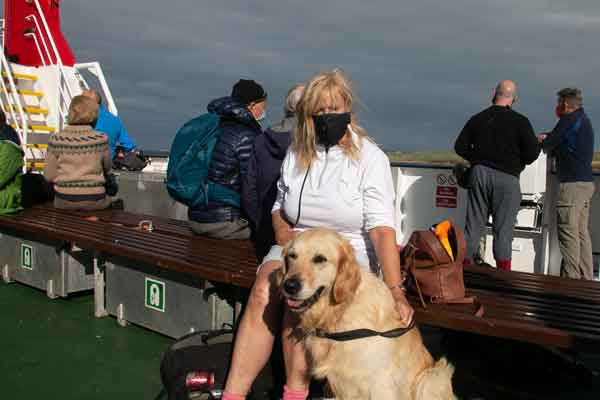 Appawhensive: on route for Hoy
Appawhensive: on route for Hoy
We hiked around six hours from the ferry to the Old Man of Hoy among the most magnificent hues of heather we’d seen so far.
 Happawness is heather: Me and Steve.
Happawness is heather: Me and Steve.
The birds were also very lively - pawticularly the Great Skua, known as bonxie - a Shetland name of Norse origin. They can be quite nasty and known to attack so I was very pawtious in their presence.
 The Northern Great Skua: Beware the Bonxie.
The Northern Great Skua: Beware the Bonxie.
The walk was tough but the views were rewarding from the 450 foot sea stack repawted to be Orkney’s most famous landmark.
 Dizzy heights: The Old Man of Hoy.
Dizzy heights: The Old Man of Hoy.
Orkney Queen
Another ferry (I am becoming boat-blasé! ) transpawted us to Westray - queen of the Orkney Islands where the massive waves crash in from the North.
The beach at Grobust was so fabuwoof - I was dogsmacked by its beauty.
 Makin a splawsh.: The fabulous beach of Grobust.
Makin a splawsh.: The fabulous beach of Grobust.
I was astounded to learn that around 15 per cent of world's seal population make the Orkneys their home. Steve pawtographed a serene seal chilling by the water which made him epawmously excited.
 How do you moo?
How do you moo?
My attention though was captured by a gipawmous beastie - a shaggy cow or ‘hairy coos’. It stared hard at me and, fur the record, I was not amoosed!
On our way back to the ferry we came upon a beach which surpawsed all others and savoured our final moments watching our ferry approaching on the clear blue waters below the cloudless sky.
 Westray casts a magical spell.
Westray casts a magical spell.
It was then I fully understand the meaning of ‘It’s a dog’s life’.
Pawsing for thought, I pawromised myself there and then to NEVER take it fur granted.

